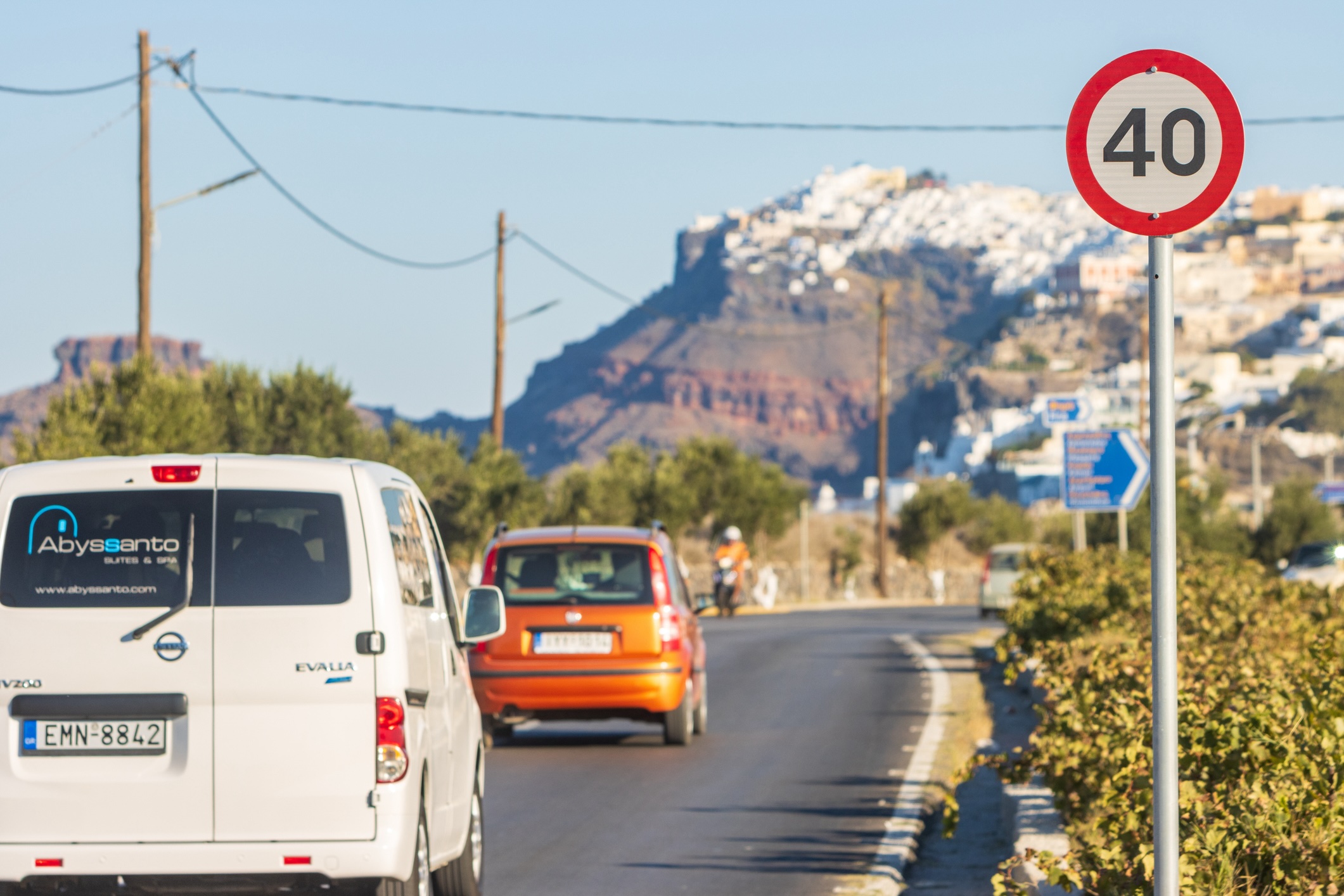Renting a car in Greece is an excellent way to explore the country at your own pace, especially if you plan to venture beyond the major cities and into the countryside or the islands. With a car, you can discover hidden beaches, picturesque villages, and ancient ruins that are off the beaten path. However, before you hit the road, there are a few essential things you should know to ensure a smooth and enjoyable experience. Here’s a comprehensive guide to renting a car in Greece.
1. Understanding the Rental Requirements
Before you can rent a car in Greece, you must meet certain requirements:
- Age: Most car rental companies in Greece require drivers to be at least 21 years old. However, drivers under 25 may face additional fees or restrictions on the type of car they can rent. Some premium vehicles may have a minimum age requirement of 25 or even 30 years.
- Driver’s License: You’ll need a valid driver’s license to rent a car in Greece. If your license is issued by a country within the European Union, you can use it without any issues. However, if you’re from outside the EU, you may need an International Driving Permit (IDP) in addition to your regular license. It’s best to check with the rental company in advance to avoid any surprises.
- Credit Card: A major credit card is typically required for the car rental deposit. Some companies accept debit cards, but it’s less common. Make sure the card has enough available credit for the security deposit, which can range from a few hundred to over a thousand euros, depending on the vehicle.
2. Choosing the Right Car
Greece offers a wide range of rental vehicles, from compact cars ideal for city driving to SUVs suited for rugged terrain. When choosing a car, consider the following factors:
- Size: If you’re planning to explore narrow streets in historic towns or small islands, a compact car is a good choice. On the other hand, if you’re traveling with a group or have lots of luggage, you might prefer a larger vehicle.
- Transmission: Manual transmission cars are more common in Greece, and they are usually cheaper to rent. If you’re not comfortable driving a manual, make sure to reserve an automatic in advance, as availability can be limited.
- Fuel Type: Most rental cars in Greece run on unleaded gasoline, but diesel options are also available. Diesel cars can be more fuel-efficient, especially for long road trips, but make sure you know the type of fuel your car requires before refueling.
3. Understanding Greek Road Rules
Driving in Greece can be different from what you’re used to, so it’s important to familiarize yourself with the local road rules:
- Speed Limits: The speed limits in Greece are generally 50 km/h (31 mph) in urban areas, 90 km/h (56 mph) on rural roads, and 130 km/h (81 mph) on highways. Be sure to adhere to these limits, as traffic police are vigilant, especially in tourist areas.
- Road Signs: Road signs in Greece follow international conventions, but many are in Greek. Familiarize yourself with common signs, and if you don’t read Greek, look for signs that also include English translations.
- Parking: Parking can be challenging in cities like Athens and Thessaloniki. Look for blue zones where you can park for a fee, or white zones where parking is free but often time-limited. Avoid parking in yellow zones, as these are usually reserved for specific vehicles.
- Seat Belts and Mobile Phones: Wearing seat belts is mandatory for all passengers, and using a mobile phone while driving is illegal unless you have a hands-free system.

4. Navigating Greek Roads
Greek roads range from modern highways to narrow, winding mountain roads. Here’s what you need to know to navigate them safely:
- Highways: The main highways, known as “Ethniki Odos,” are generally well-maintained and connect major cities and regions. These roads often have tolls, so keep some cash or a credit card handy.
- Rural Roads: When driving in rural areas, be prepared for narrow roads, sharp turns, and the occasional livestock crossing. Drive cautiously, especially at night, as roads may be poorly lit.
- Mountain Roads: If you plan to explore mountainous regions, be aware that roads can be steep and winding. Take your time and use lower gears when descending to avoid overheating your brakes.
5. Fueling Up
Gas stations in Greece are generally plentiful in urban areas and along major highways, but they can be scarce in rural regions and on smaller islands. Most stations are full-service, meaning an attendant will fill your tank for you.
- Payment: While many gas stations accept credit cards, it’s a good idea to carry some cash, especially in more remote areas.
- Hours of Operation: In cities, gas stations are usually open from early morning until late at night, with some operating 24/7. However, in rural areas, stations may close early in the evening or on Sundays.
6. Insurance and Safety
Car rental companies in Greece typically offer several types of insurance:
- Basic Insurance: Most rentals include basic coverage, which often comes with a high excess (deductible). This means you’ll be responsible for a certain amount if the car is damaged.
- Collision Damage Waiver (CDW): This reduces your liability in case of an accident, but there may still be an excess. You can often pay extra to reduce this excess further.
- Theft Protection: This covers the car in case it’s stolen, but like CDW, it usually comes with an excess.
- Additional Coverage: Consider additional insurance options, such as coverage for tires and windshields, which are often excluded from basic policies.
7. Returning the Car
When returning your rental car, make sure to:
- Refuel: Most rental agreements require you to return the car with a full tank of gas. Be sure to refuel just before you drop it off to avoid extra charges.
- Inspect the Vehicle: Before handing over the keys, inspect the car for any new damage and take photos as proof of its condition. This can help avoid disputes over damage claims.
- Timing: Return the car on time to avoid late fees. If your flight is late at night or early in the morning, check if the rental company offers after-hours drop-off.
Conclusion
Renting a car in Greece gives you the freedom to explore the country’s diverse landscapes, from ancient ruins to pristine beaches and everything in between. By understanding the rental process, familiarizing yourself with local driving rules, and planning your routes carefully, you can enjoy a smooth and memorable road trip across Greece. Whether you’re cruising along the coastal roads of the Peloponnese or navigating the winding streets of a mountain village, the adventure of driving in Greece is one you won’t soon forget.











